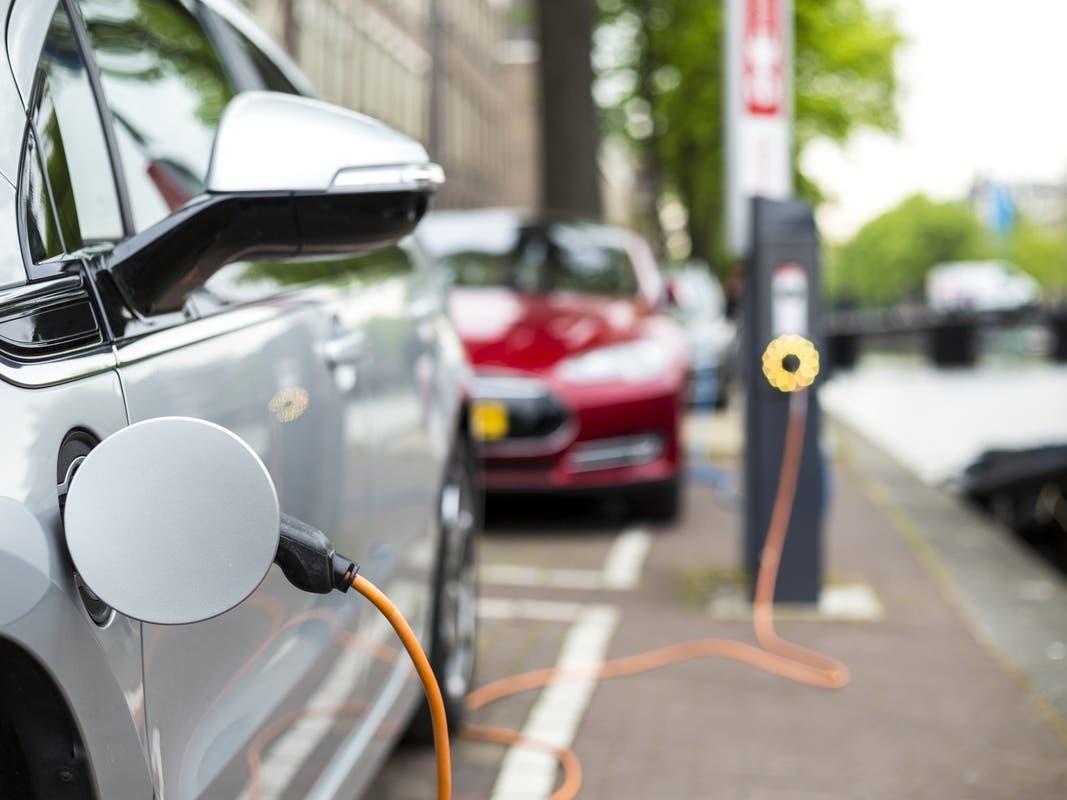Travel
EV Charging Stations Move Forward: What It Means In Massachusetts
The news comes as the percentage of Massachusetts electric vehicle drivers grew 747 percent since 2016.

MASSACHUSETTS — Construction of electric vehicle charging stations in Massachusetts could begin as early as next spring after the U.S. Department of Transportation on Tuesday gave final approval to all 50 states to begin building a nationwide network to support zero-emission cars and trucks.
Under the Bay State's electric vehicle charging station plan, the Massachusetts Department of Transportation (MassDOT) targeted major highway corridors as spots to install charging stations. MassDOT, in its plan, wrote that any current highway gap with more than 50 miles between charging stations needs to have one built no more than a mile from highway exits.
That’s good news for thousands of electric vehicle, or EV, owners in Massachusetts.
Find out what's happening in Across Massachusettswith free, real-time updates from Patch.
Some 30,500 EVs were registered in Massachusetts last year, an increase from about 3,600 EVs in 2016, according to registration counts estimated by the Energy Department’s National Renewable Energy Laboratory using data from Experian Information Solutions.
Massachusetts EV drivers typically don’t have trouble finding EV charging stations in metro areas, but they are more scarce in rural areas, especially in central and western parts of the state.
Find out what's happening in Across Massachusettswith free, real-time updates from Patch.
After final approval of the states’ plans Tuesday, EV charging stations will be placed about every 50 miles on interstate highways with money set aside in the Biden administration’s infrastructure plan. The states will share in the release of $1.5 billion — or $5 billion over five years — to install the chargers from coast to coast.
The department gave final approval to EV charger plans submitted by the last 17 states. Plans for the other 33 states and the District of Columbia were approved earlier this month.
Some states are farther ahead than others in developing the critical infrastructure to support the EVs. By the end of the year, drivers could see expansions and upgrades to existing EV stations in California, Colorado, Florida and Pennsylvania that have at least four fast-charger ports that can fully recharge an EV in about an hour.
“America led the original automotive revolution in the last century, and ... we’re poised to lead in the 21st century with electric vehicles,” Transportation Secretary Pete Buttigieg said in a statement.
The plans will “help ensure that Americans in every part of the country — from the largest cities to the most rural communities — can be positioned to unlock the savings and benefits of electric vehicles.”
Approval of the states’ plans is a major step toward building widespread acceptance and use of electric vehicles among consumers, whose hesitancy is measured by the limited availability of public chargers.
President Joe Biden has set a goal that half of new U.S. car sales be electric by 2030. As part of the Inflation Reduction Act, the Biden administration authorized tax credits of up to $7,500 next year to make electric vehicles more accessible to everyday Americans.
Still, the five-year plans suggest a potentially long and bumpy road ahead for a highway EV network, with states citing risks such as a lack of electricity grid capacity, supply chain shortages and equity concerns.
For instance, while Texas, California and Florida say their grid should be able to handle increased capacity of a million or more EVs, other states aren't so sure.
“Capacity will become a concern in future years as charging infrastructure and EVs become more ubiquitous,” New Mexico said in its plan.
Vermont wrote that “Unmanaged or unplanned for EV charging could cause utilities to incur significant costs to maintain grid reliability and create challenges for grid operators” and that some locations “may also necessitate intensive grid upgrades and buildout.”
Mississippi cited potential shortages of EV charging station equipment, which it said “may cause significant setbacks” in construction. Several states also expressed concern that they would not be able to acquire charging stations that meet the American-made provisions.
“It may delay implementation by several years,” New Jersey officials wrote.
Under the Department of Transportation’s requirements, states also must focus first on more expensive fast chargers on highway routes that typically cost $40,000 to $100,000 to install, rather than keying in on neighborhoods and communities with Level 2 chargers that are cheaper but take a few hours to provide a full charge.
Currently, electric vehicle owners charge their vehicles at home 80 percent of the time, typically at single-family houses. But that is likely to change as the less affluent who don’t have a garage to house a charging station buy EVs.
Biden’s bipartisan infrastructure law provides an additional $2.5 billion for local grants to fill the remaining gaps in the charging network in rural areas and in disadvantaged communities, which are less likely to own the higher-priced electric vehicles or have charging stations readily available near them.
The Federal Highway Administration said Tuesday that it will begin taking applications for that money later this year.
The Associated Press contributed reporting.
Get more local news delivered straight to your inbox. Sign up for free Patch newsletters and alerts.